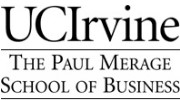Top 5 Things I Like
1. Blockbuster Total Access: For $9.99/month gets you one movie at a time mailed to you. When you are finished you return it to a physical Blockbuster store and get a free movie. While you watch that movie, they send you the next movie on your list. Then, repeat. During school, Lindsey and I are able to watch a movie on Friday and Saturday. That works out to 8 movies for $10! During Christmas, I think we were watching 4 movies a week through this deal. Great value for the starving student!
2. Trader Joe's: It's not quite a
 health food market, although alot of it's products are organic. It is not quite a high end food store because many of its prices vary from inexpensive to very reasonable. It is very hard to define Trader Joe's, but here is my attempt: If you feel like some good food check this place out first! Also, home to the amazing 2 buck Chuck! That brings us to our next point...
health food market, although alot of it's products are organic. It is not quite a high end food store because many of its prices vary from inexpensive to very reasonable. It is very hard to define Trader Joe's, but here is my attempt: If you feel like some good food check this place out first! Also, home to the amazing 2 buck Chuck! That brings us to our next point...3. Cheap Booze: Want a decent table wine - $2 for 2 buck Chuck! Do I want a 20 pack of beer - MGD on sale for $9. Do I want 1.75 litre of Rye or Vodka - how about $12? God Bless America. Thank god I am not in contact with my Sault Ste. Marie friends; they would move out here in an instant and create illegal alien issue of a whole new kind.
4. Mountains, Cliffs, and Ocean, Oh My!: There is something about waking up and walking to class and seeing snow capped mountains in the background. Relative to London, Canada the scenery is so dramatic that it can help but inspire you.
5. American Cell Phone Competition: What??? I will equal to or less than a Canadian provider's base package but you package includes free nation-wide roaming and long-distance plus you will include features that I normally pay extra for in Canada such as voicemail with the base package!! Sign me up. Canadian providers take note. (Honorable mention for U.S. Banks and no fee chequing accounts)
5 Things I Dislike
1. Cellphones and Cars: If I didn't know better there is a law that states that the moment you enter your car, you must get on your cell phone. When I am driving around, I feel like the minority of people who aren't on the cell. Now, I am not talking about using a bluetooth headset. These are people who drive with one hand (if we're lucky) on the steering wheel and one hand glued to the cell on the ear. I even saw a guy and girl in the two front seats each on their own cell phone (God forbid that you talk to one another). Seeing all of this on the road makes you wonder when, not if, they are going to backend you.
2. U.S. Healthcare: I am sorry, but without a PHD in rocket science you will not be able to figure out which plans provide the best value. I still do not no where I am able to go if I need to see a doctor immediately, but where it isn't an emergency room situation. Sorry U.S., but IMHO the availability of a small subset of high level doctors plus the ability to get an x-ray within 5 minutes of spraining your thumb does not outweigh the high costs and confusion surrounding your system.
3. Cheap Booze!: It's a blessing and a curse. My poor liver!
4. What is wrong with these drivers?: Nearly everyday, we see a news report on someone who drove into house or some other bizarre driving accident. I am terrified to be a pedestrian for fear of a car driving on the sidewalk. Maybe it has something to do with the cell phones? I hope so because if it is not we got some problems here.
5. U.S. Work Visa System: It appears they are so focused on keeping people out, they are overlooking the discussion on "how to leverage the talent that is here to help all of us succeed". U.S. unemployment rates are among the lowest in the world, so it is not like internationals are disenfranchising Americans. In fact, arguably there is a great need for more talent to be made available to businesses. This does not mean I am for illegal immigration; I am for improving legal immigration.




